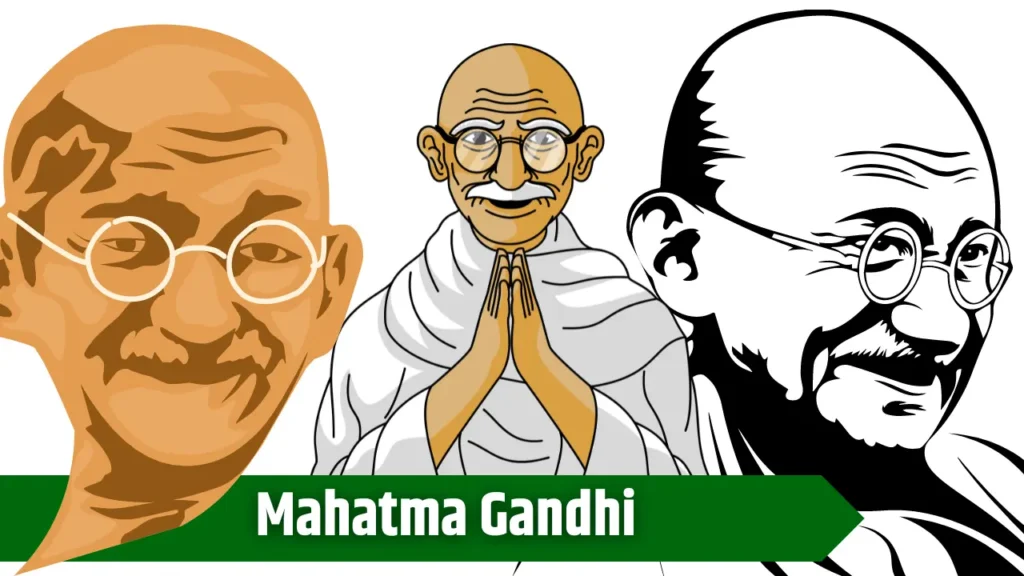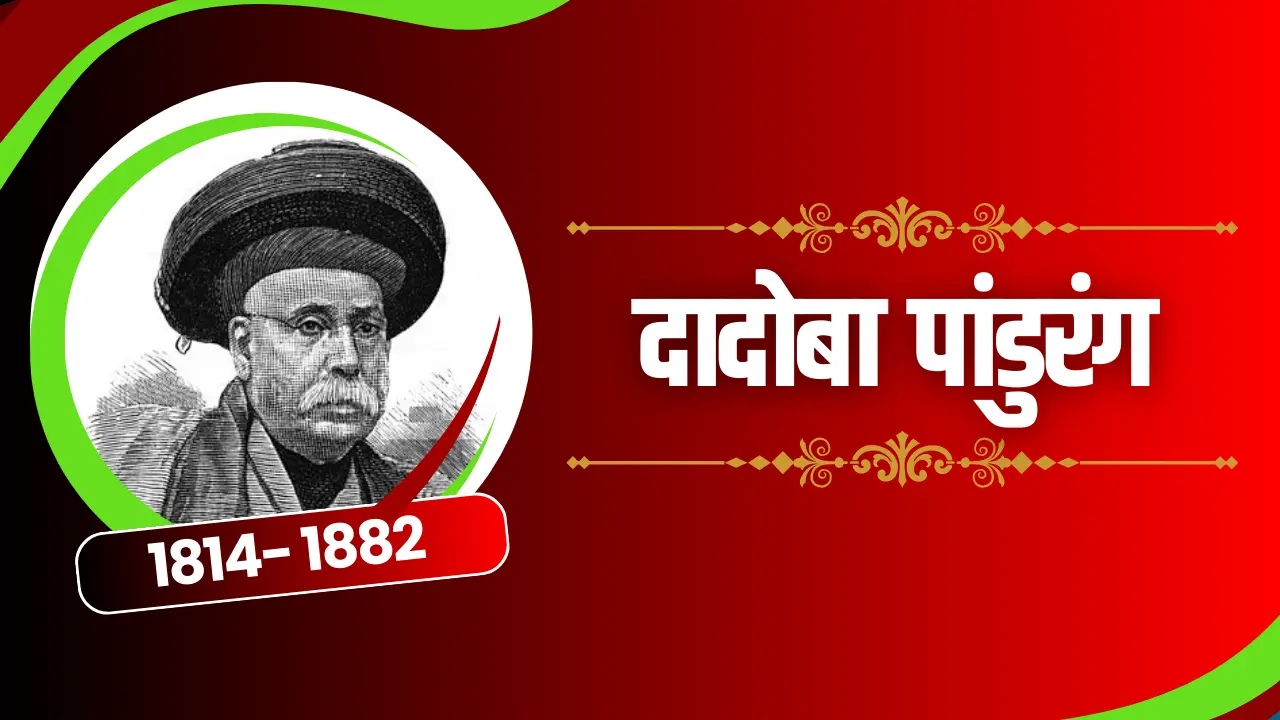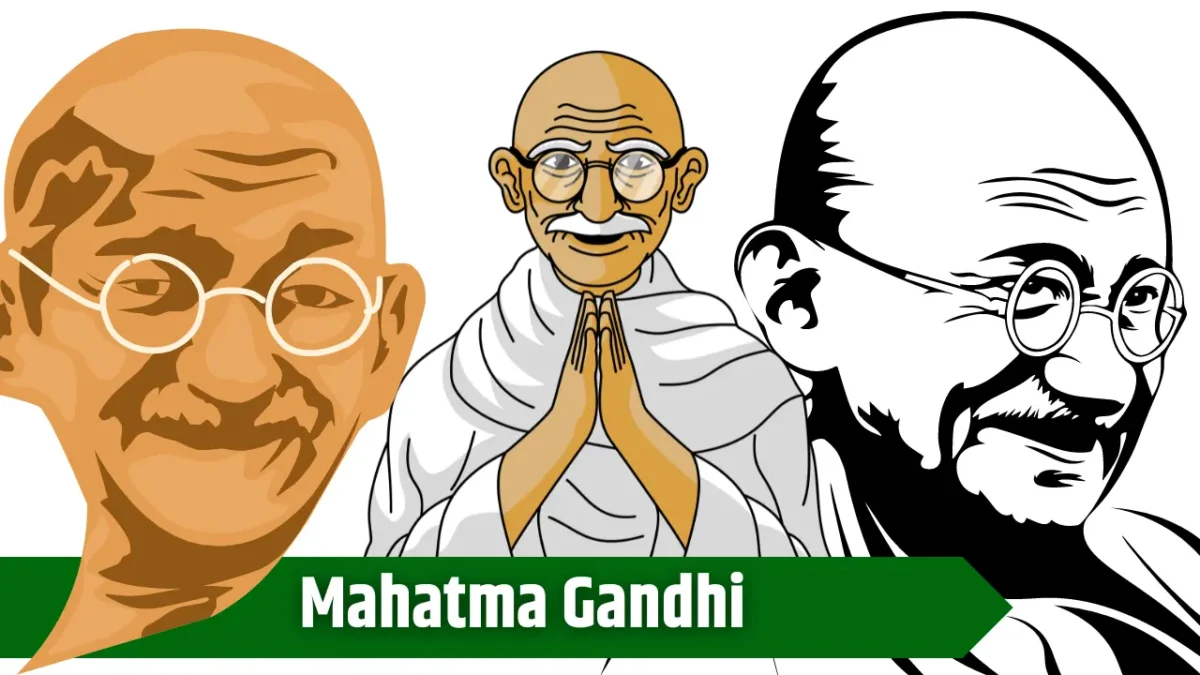Mahatma Gandhi: The Father of the Nation Who Shaped India’s Destiny
Introduction:
Mohan Das Karam Chand Gandhi, born on October 2, 1869, in Porbandar, Gujarat, played an unparalleled role in India’s struggle for independence. Known as the Father of the Nation, Gandhi’s journey from a young law student to a global icon of non-violence is a tale of conviction, resilience, and unwavering commitment to truth.

1) Early Life and Education:
Gandhi’s journey began in Porbandar, where he was born to Karam Chand Gandhi, the Diwan of Rajkot. At the age of seven, he started his education, later traveling to England to study law after completing his matriculation and college studies. Despite facing challenges, including an unsuccessful law practice, Gandhi’s commitment to truth and justice remained steadfast.
2) Transformation in South Africa:
Gandhi’s life took a transformative turn when he went to South Africa for a legal case. Witnessing the discrimination faced by Indians, he decided to champion their cause. This led to the establishment of Tolstoy Farm and the birth of his philosophy of non-violence, Satyagraha. The Indian Relief Act of 1914, a result of his efforts, marked a significant improvement in the lives of Indians in South Africa.
3) Return to India and Independence Movement:
Returning to India in 1915, Gandhi joined the Congress Party and initiated the Satyagraha Movement. His philosophy of non-violence and civil disobedience proved to be a formidable force against the British Empire. The historic Dandi March and the Quit India Movement of 1942 demonstrated the power of peaceful resistance, ultimately leading to India’s independence in 1947.
4) Post-Independence Challenges and Martyrdom:
Despite India gaining independence, Gandhi faced deep disappointment. He vehemently opposed the partition based on religion and envisioned a Congress-free political landscape. His dreams remained unfulfilled as India witnessed communal violence during partition. Disillusioned, Gandhi withdrew into seclusion and prayers. On January 30, 1948, he was assassinated, and India observes this day as Martyr’s Day.
5) Legacy and Global Impact:
Gandhi’s influence extended far beyond India’s borders. His philosophy of non-violence inspired movements for civil rights and freedom around the world. A Hollywood film depicting his life garnered international acclaim. Despite changing times, Gandhi remains relevant, with people across the globe continuing to draw inspiration from his principles.
6) Gandhian Principles in Modern Context:
In the present era, Gandhi’s principles of non-violence, simplicity, and truth continue to resonate. His emphasis on sustainable living, community empowerment, and social justice finds relevance in addressing contemporary global challenges. From environmental conservation to social equality, Gandhian ideals provide a timeless guide for individuals and movements seeking positive change.
Conclusion:
Mahatma Gandhi’s life was a testament to the transformative power of non-violence and unwavering commitment to truth. While India celebrates him as the Father of the Nation, the global impact of his philosophy cements his place as one of the most influential figures in history. Gandhi’s legacy lives on, reminding us of the enduring power of principles such as non-violence and truth in shaping the destiny of nations. His teachings continue to offer a guiding light for navigating the complexities of the modern world.





